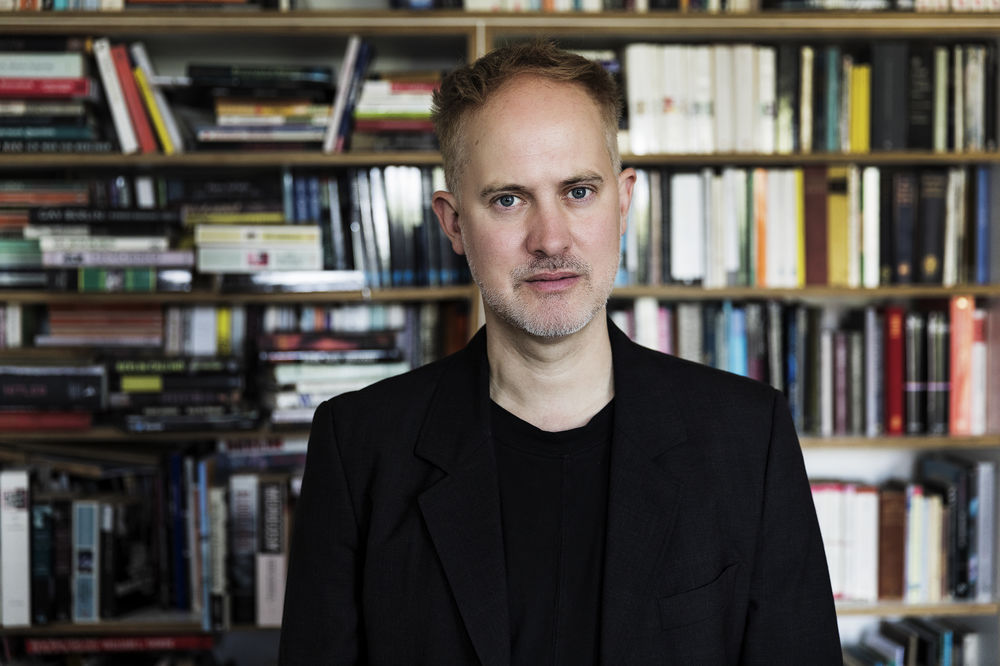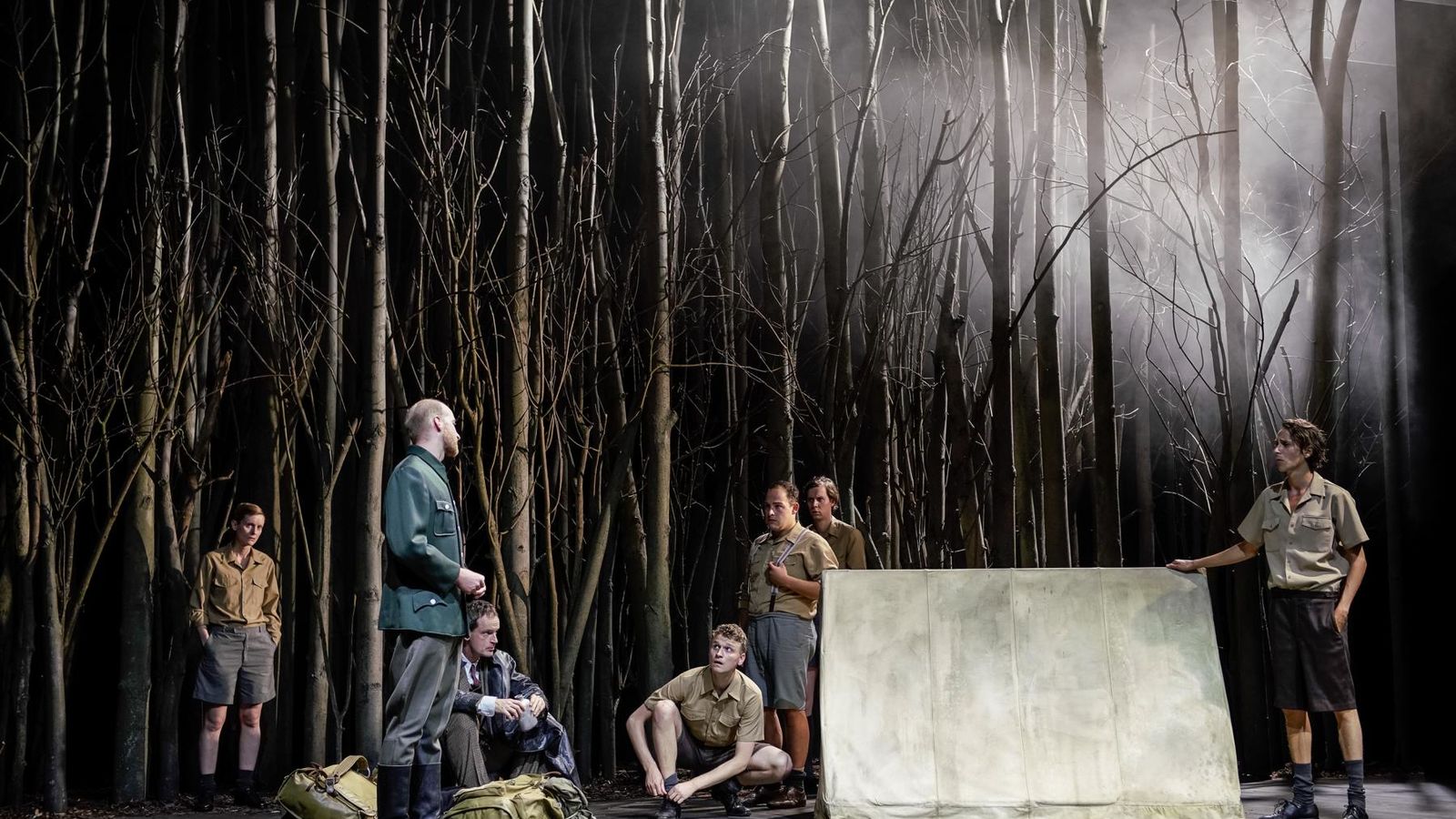
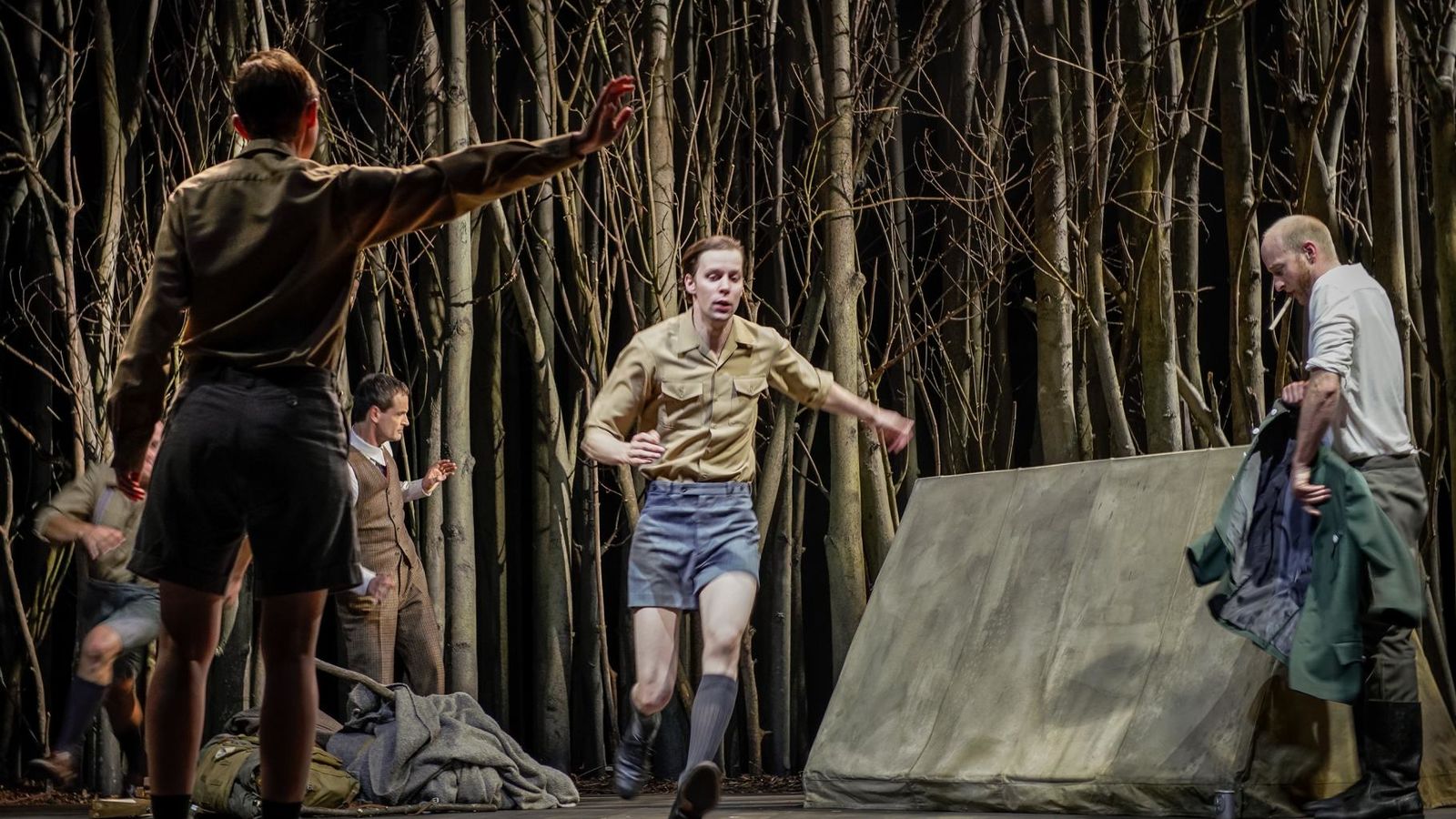
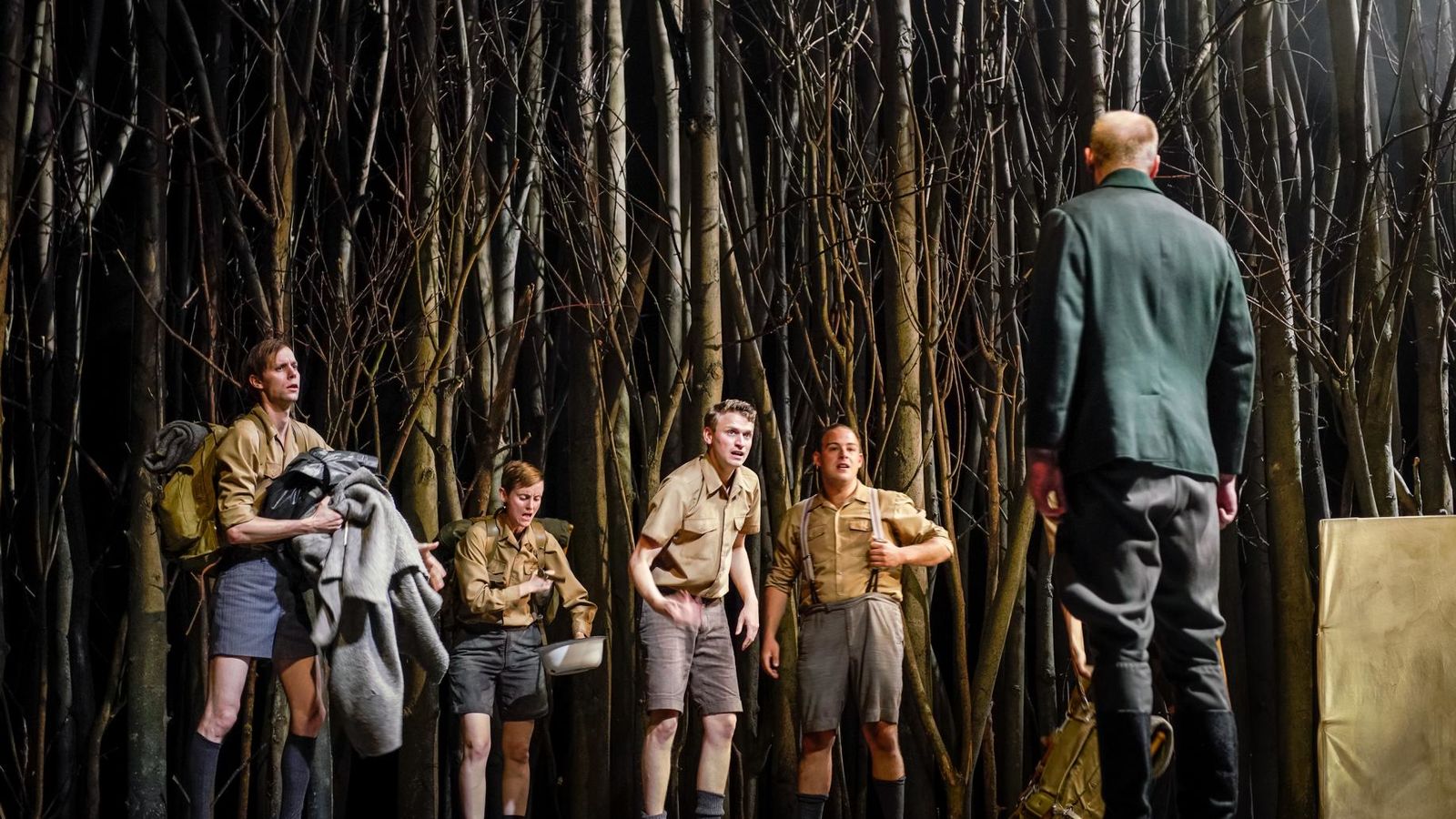
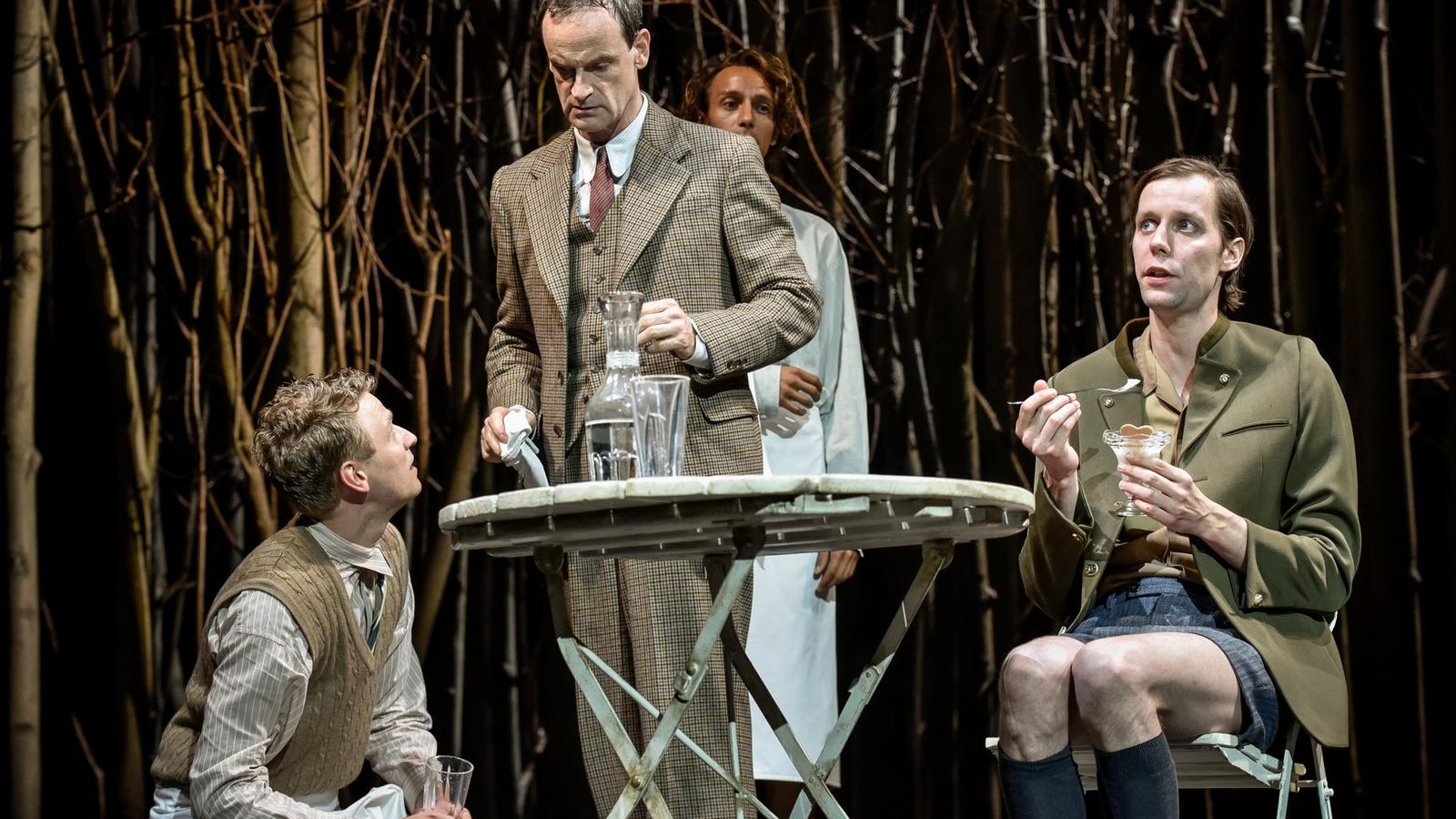
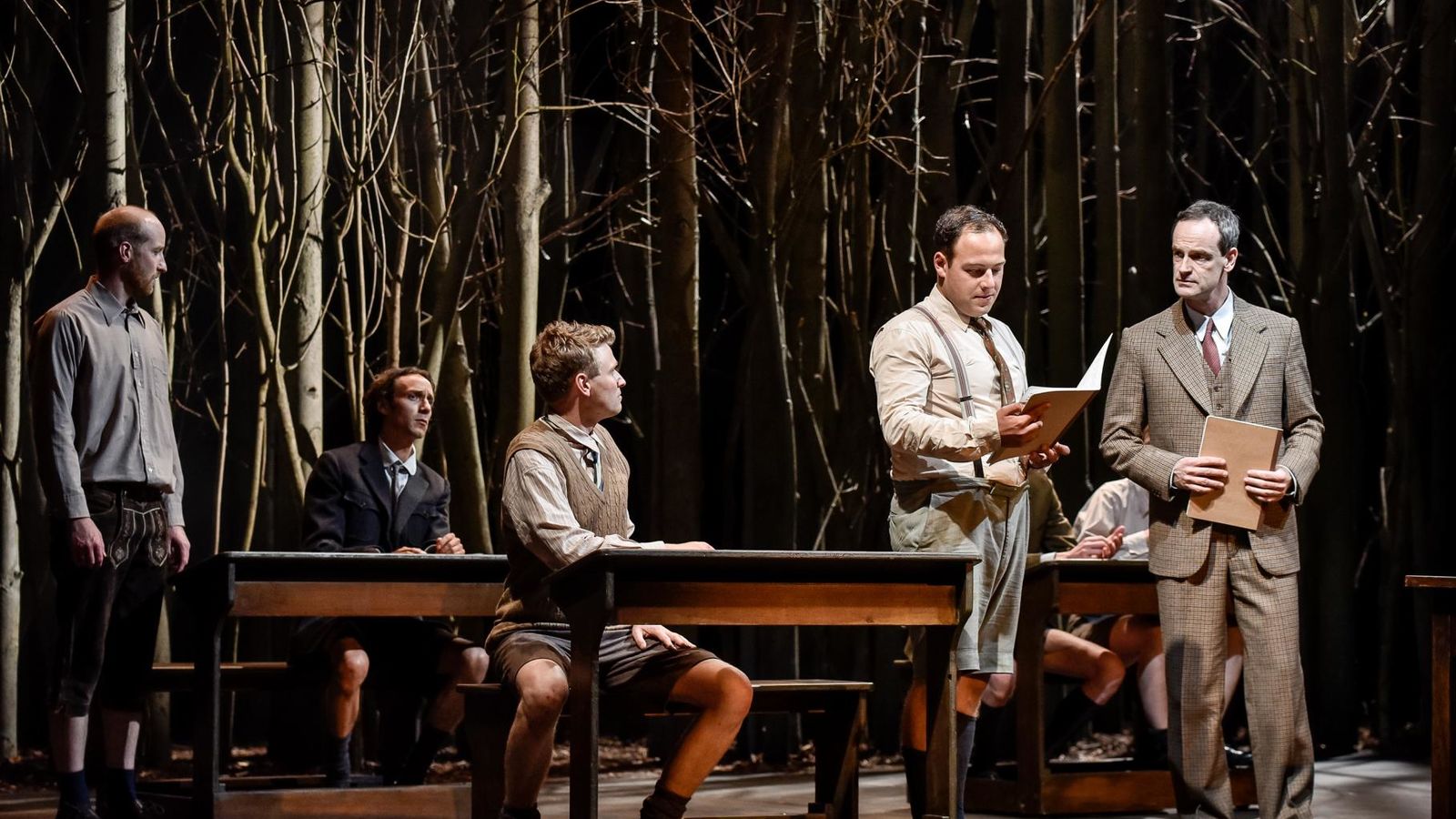
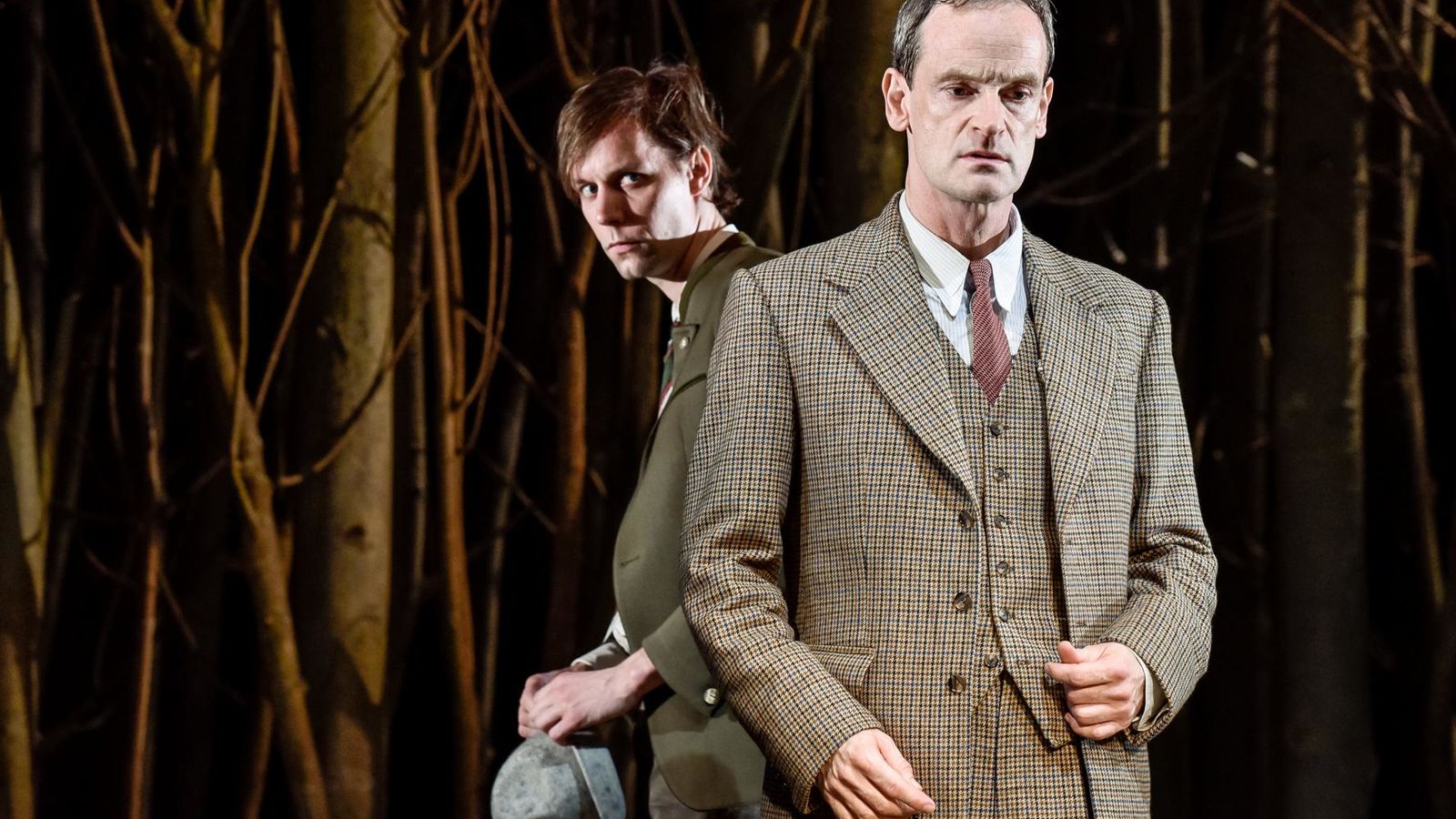
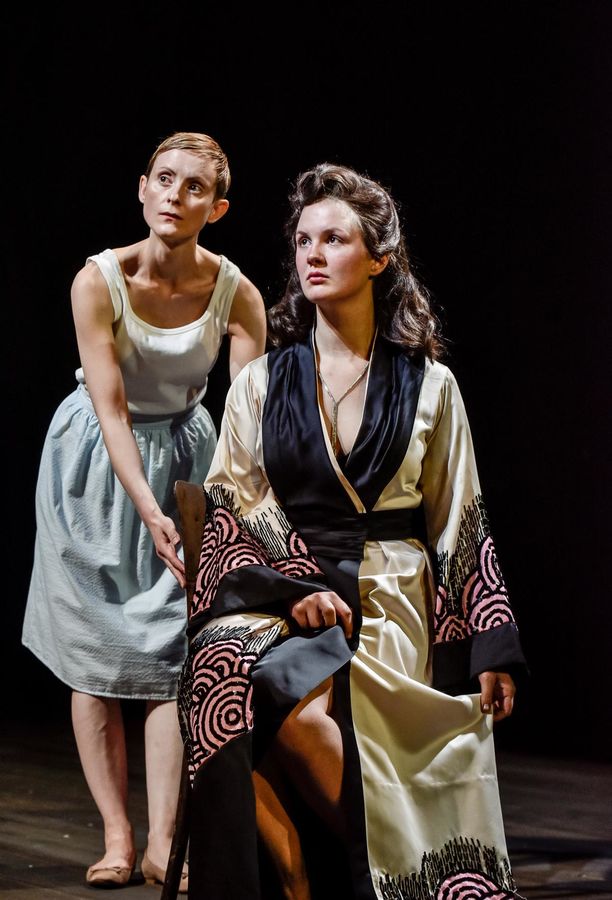
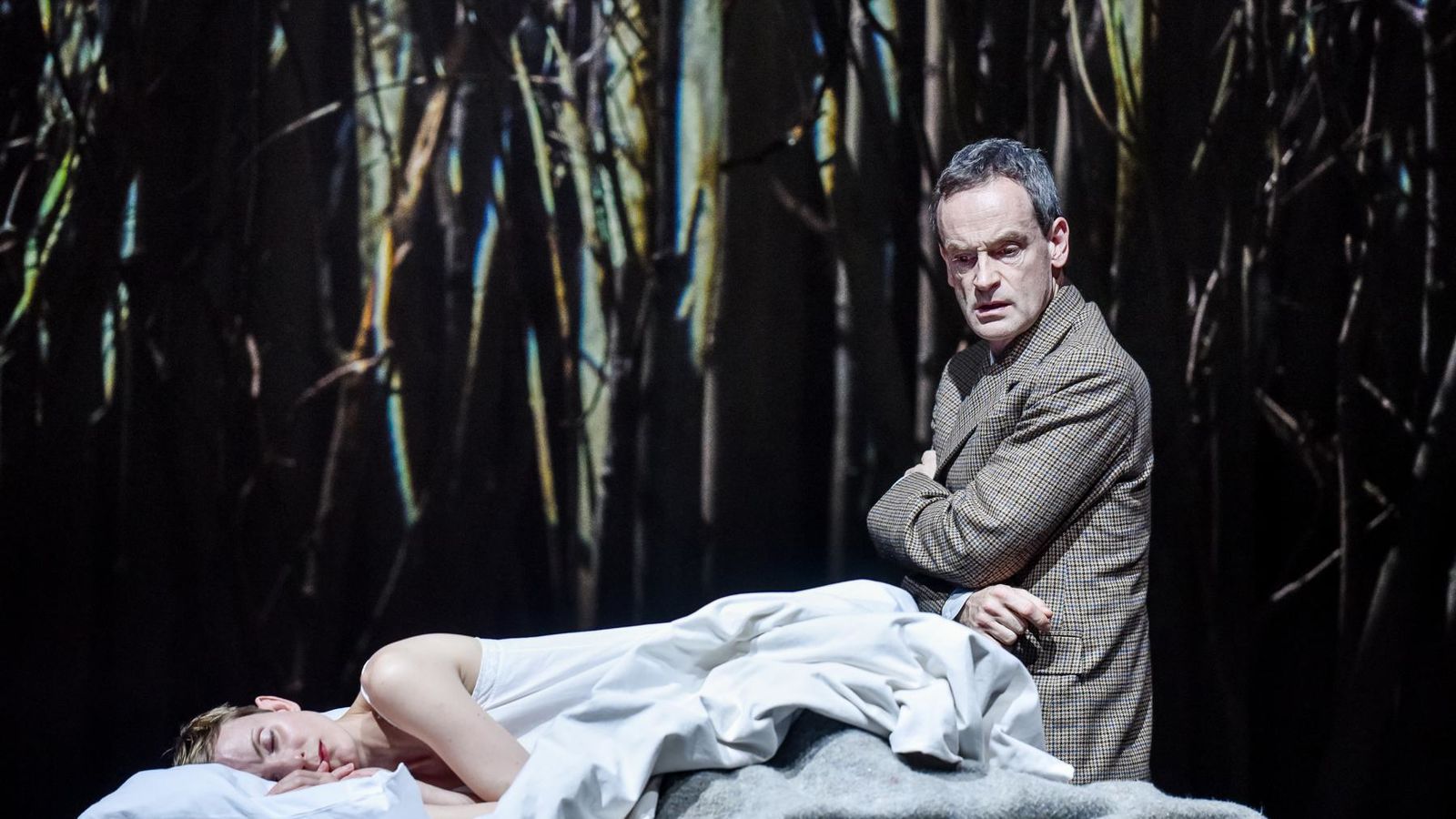
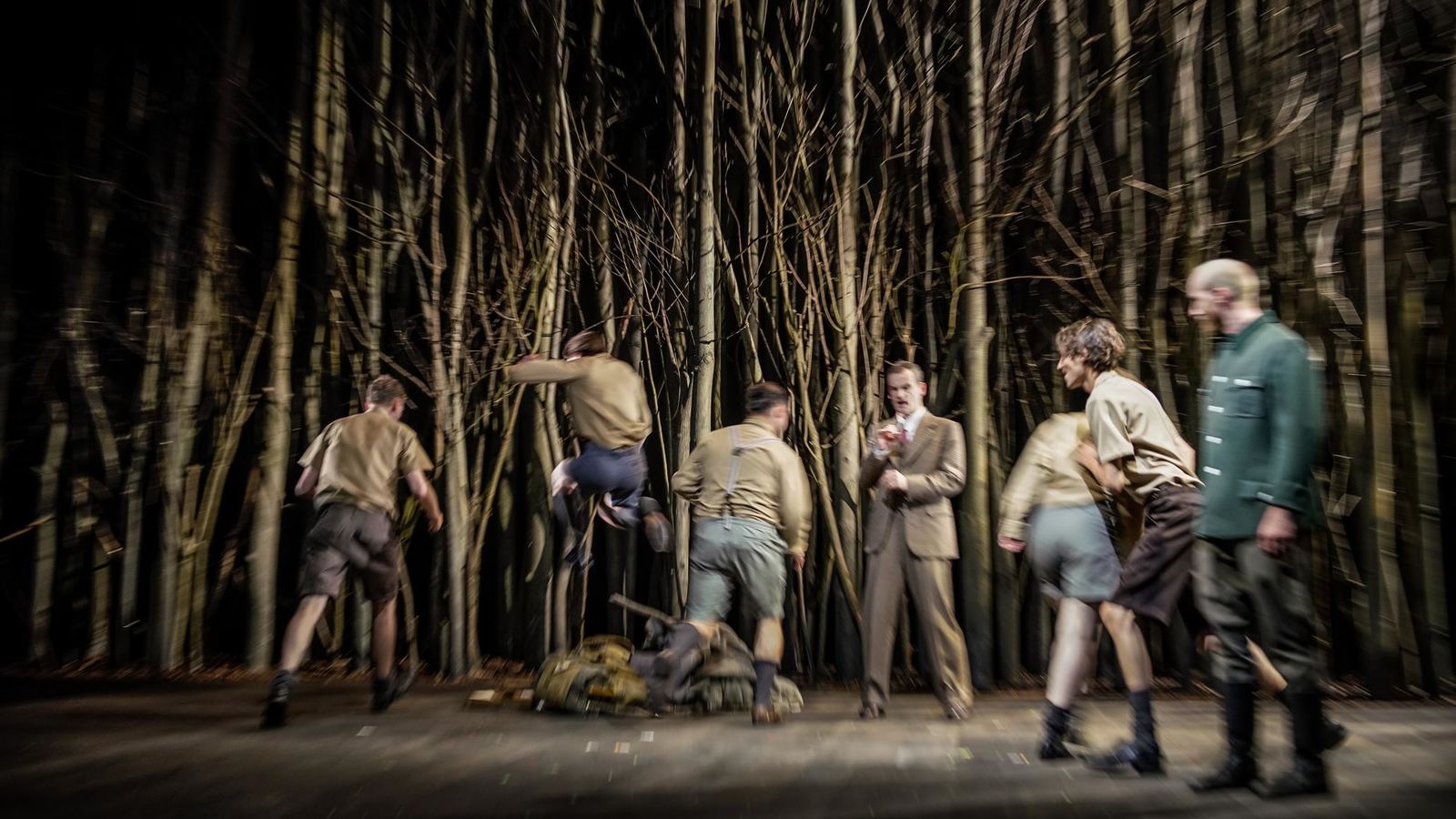
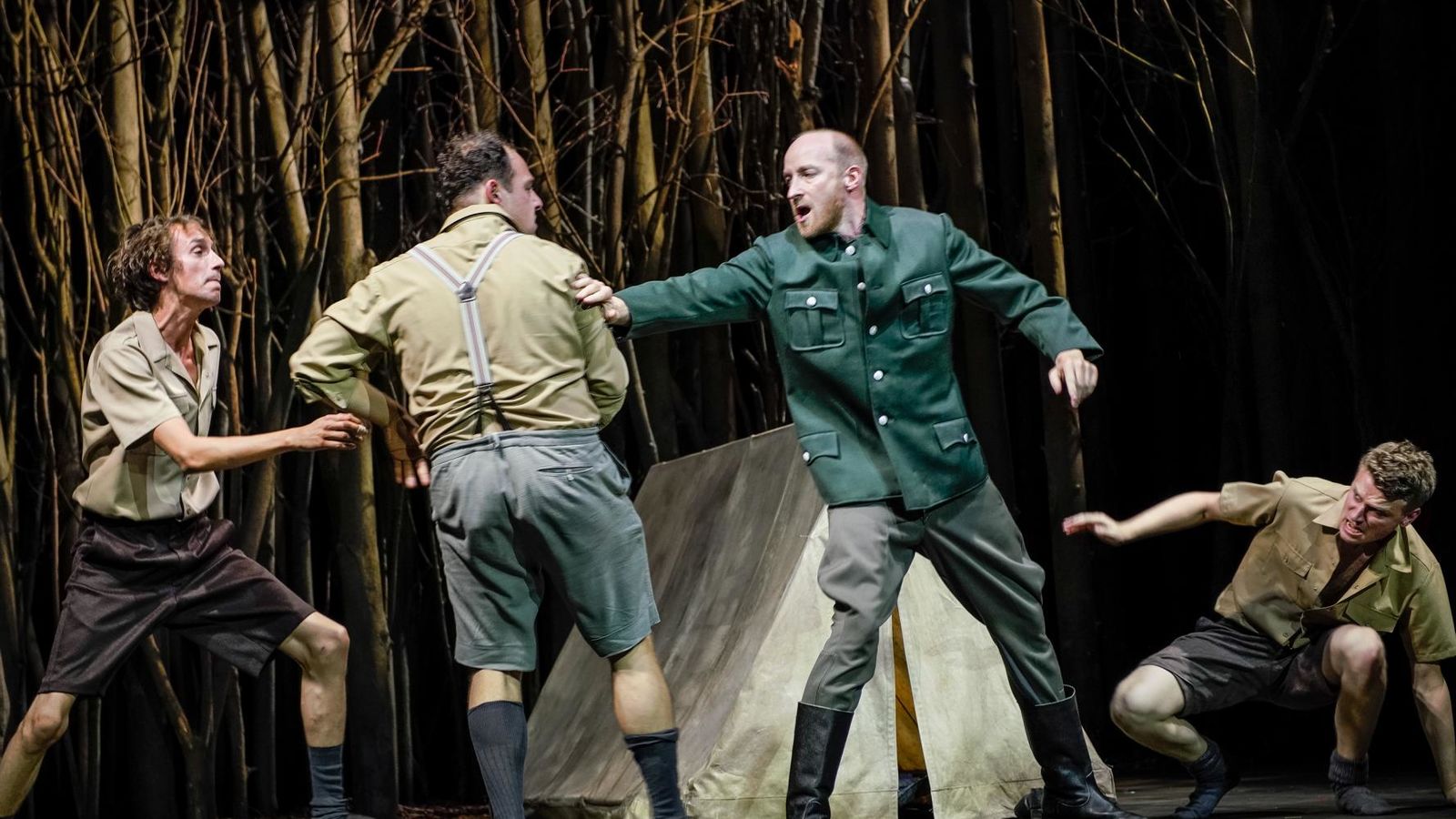
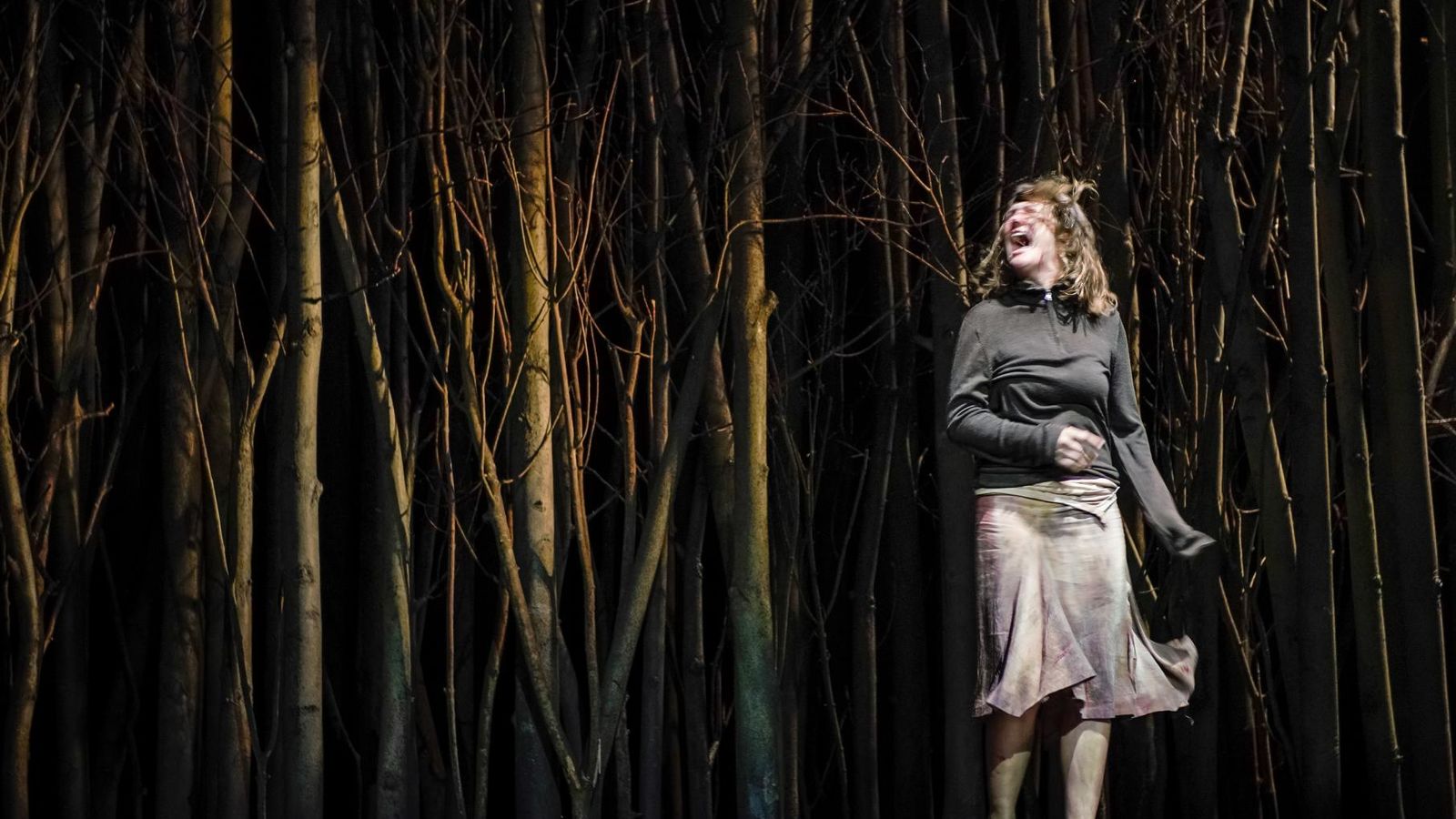
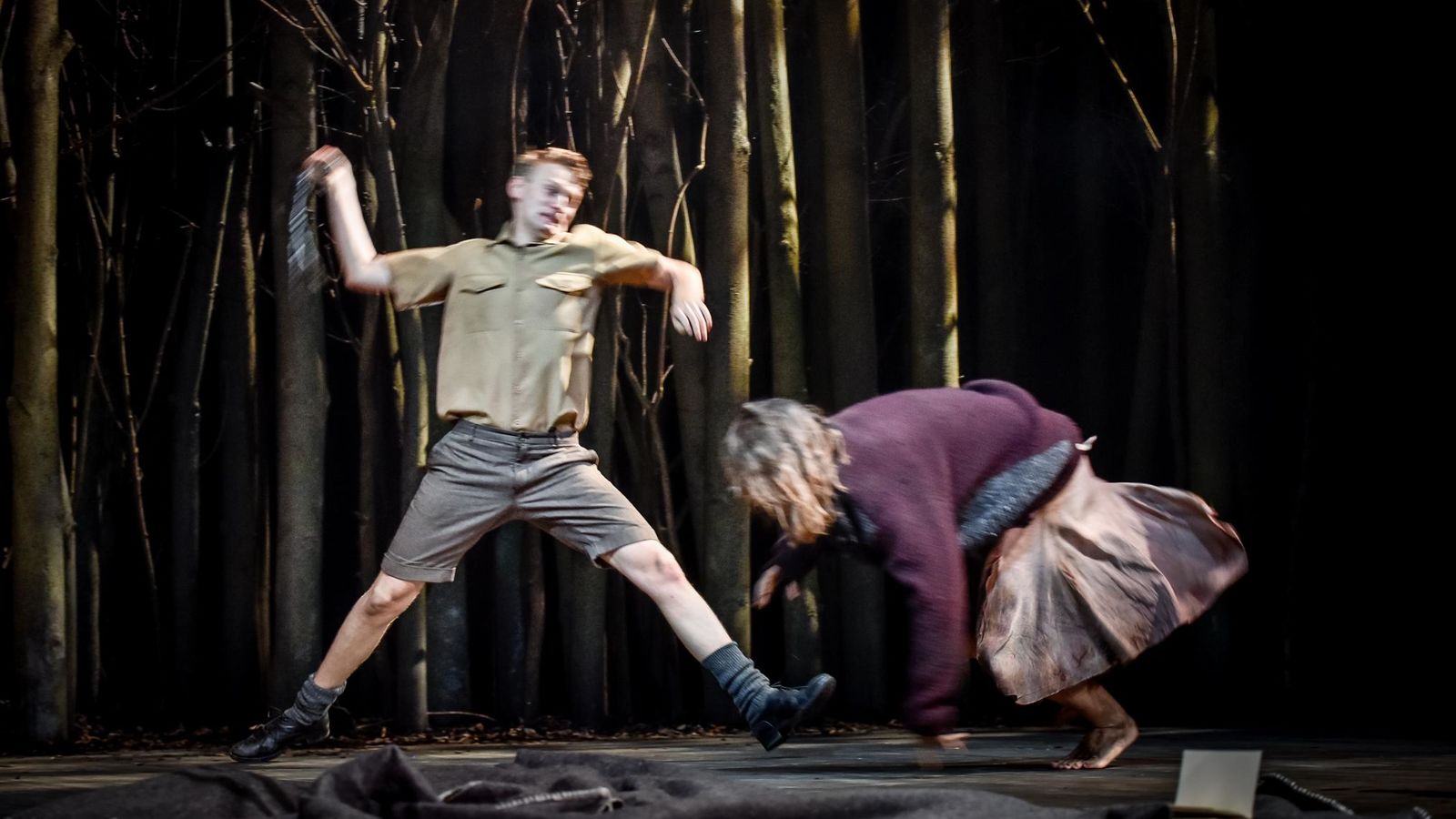
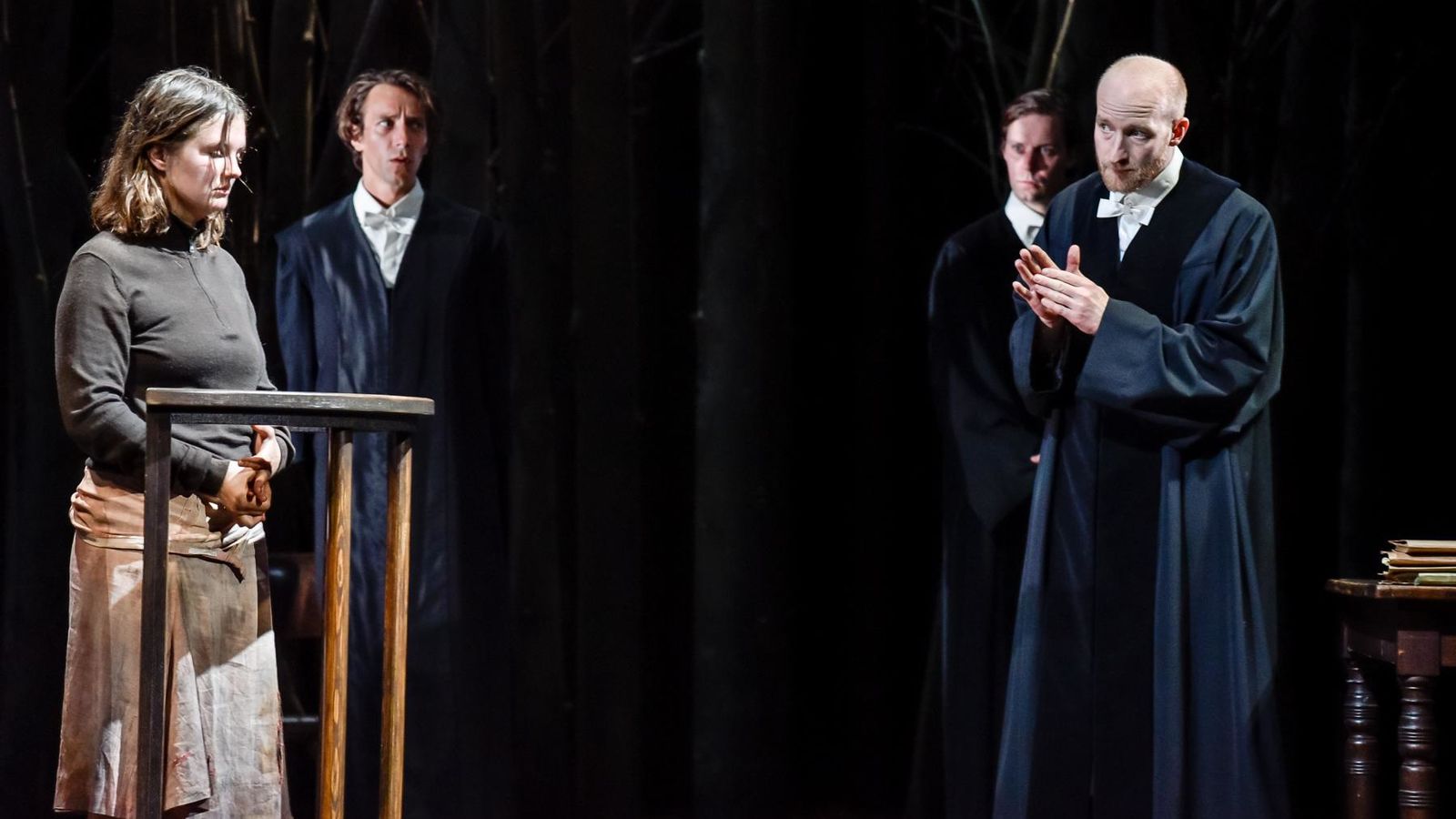
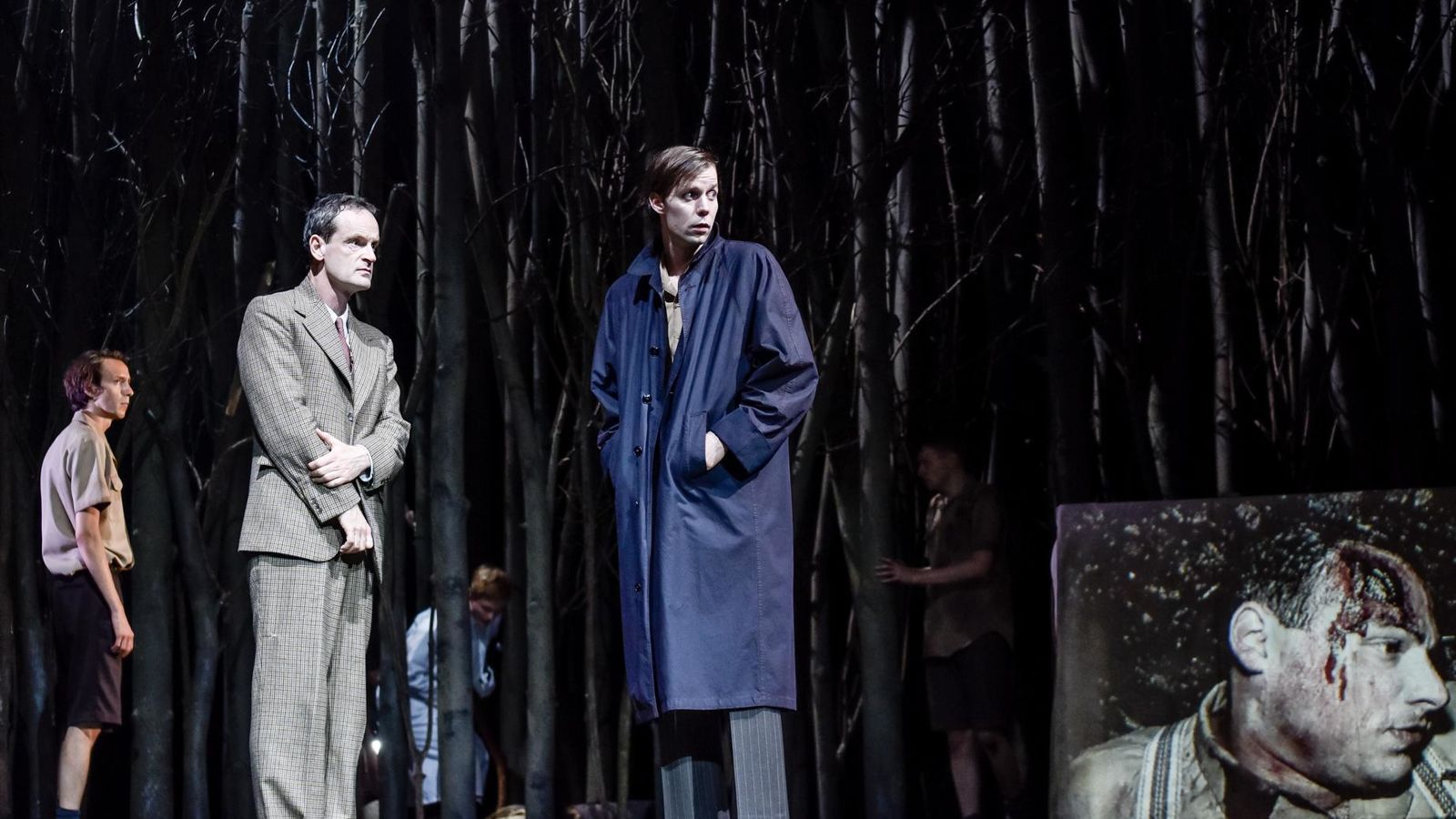
»Youth without God«. A Conversation with Thomas Ostermeier
by Joseph Pearson
29 June 2019
I meet director Thomas Ostermeier in his office in the Schaubühne on Kürfürstendamm. He stands at the window, looking out to the street and waves to some of his actors – now out of costume – smoking on the pavement. Behind them pass a phalanx of children, led by their teachers, returning perhaps from an excursion. And I wonder: how different did the view from that same window look in 1933, the year this building’s architect Erich Mendelsohn fled from the Nazis? To what extent can the view to yesterday be harmonised with the Berlin of today? What happened to those children?
Thomas turns from the window, and we begin to speak about his new production »Youth without God«. The anti-fascistic novel of Ödön von Horváth, published in 1937, is often held up as a warped mirror to our present politics. And I wonder what choices the director faces when putting historical prose on the contemporary stage.
Joseph Pearson:
Let us begin directly with the most important words of the title, ›Youth‹ and ›God‹. What is the relationship between them?
Thomas Ostermeier:
Both terms appear to work in concert, but are more separate voices. On one hand, godlessness is attributed to the young people in the story. Horváth describes the age in which they live as the »Age of the Fish«; they are godless, not in a strictly Catholic sense, but rather in the loss of their morality and inner decency. When god does rear his head, it is almost always the Old Testament deity, a terrible god. Horváth allows this god to appear in the youth camp when the murder is revealed. On the other hand, the title also refers to the despair of the protagonist, the teacher, who is fraught in the questioning of his inner values, his decency, and the presence or absence of a god. It is out of an agnostic worldview that he experiences a religious awakening, an epiphany that moves him to tell the truth. He summons the courage to admit that he deviously and secretly forced open a safe-box to read the private diary of one of his students. He also knows more than the others: namely, that the person accused of murdering a classmate cannot be the murderer. His subsequent actions can be read as finding his way back to god. In our staging, we may have pushed these questions slightly to the background, but one can affirm that this was a »godless time«, »eine gottlose Zeit«.
Pearson:
Let’s put the question of religion in the background now and focus on the concept of ›Youth‹. Why is it compelling for you to direct a play about young people? Are young people really so different from adults when it comes to politics?
Ostermeier:
If the next generation has a more callous worldview than yours, is more hostile to difference than your generation, more disillusioned, then things really have fallen apart. The youth might be considered, since Plato, as having the reputation for being more depraved than their forebears, but youth can also promise the renewal of society, freeing it from abuse of power, corruption, or a deficit of democracy. That is why the ’68 generation, Greta Thunberg today, or the students demonstrating on »Fridays for Future«, show their colours, and speak out vigorously against injustice. These are young people who are not yet economically dependent on a system that makes them fear losing their jobs. This is an issue of concern for Horváth: the teacher and the school director are both worried about their pensions and, as a result, are afraid to raise their voices. In »Youth without God«, the youth edge towards the abyss, rather than advancing a better future or bringing us to paradise. And it must be said that, even though the novel was completed in 1936, it tells us something essential both about what happened in fascist Germany and is happening today with the emergence of European right-wing populism – both movements that promote young men. Remember that the leading figures of the Third Reich were all between 30 and 40 years old, with the exception of Hermann Göring. The movement was one of angry young men who wanted to »clean things up« – words that you may have also heard in this or the other speech by a right-wing populist today.
Pearson:
When we speak about Youth and God – about the moral structure of a »godless generation« – how easily can we transpose Horváth’s scenarios to today?
Ostermeier:
Not at all. I am not interested to use this piece as a kind of template imposed on present circumstances, where individual phenomena can be neatly transferred. That may have been interesting for my production of »Italian Night« or for Schnitzler’s »Professor Bernhardi«, but in this case, I wanted to try something different: I wanted to tell the story of how someone summons the strength to tell the truth, and how this positive role model can awake the spirit of resistance in others. And this, in a time when a high price was paid for this courage to tell the truth. If one did not pay with one’s life, one paid with social status, one’s job, or one’s reputation. This interests me, and, on this occasion, I deliberately tell a story of its time in its time.
Pearson:
You argue that you do not wish to make a direct comparison between our times and those times. But, nonetheless, you are dealing with many contemporary political problems with your adaptation of a novel from the 1930s. There is the expression that »history does not repeat but it rhymes«. Could you tell me about your method when reflecting on the historical elements of the play?
Ostermeier:
Think of the play as a parable, and one that negotiates questions of personal responsibility and individual courage. I hope that the questions that this history raises will be taken as opportunities to reflect more intensely on our own potential for individual courage in our present predicament. These are questions that we must ask ourselves again and again, always at the risk of realising that we have taken an opportunistic path as we negotiate the conflictual fissures of our times.
Pearson:
There is one peculiar character in the novel, a former teacher called Julius Caesar. He is obsessed with sex. In one passage of the novel, Caesar explains political standpoints based on the availability of sex to different generations. There is also a running theme of voyeurism in the novel. There is the desire of the teacher towards the students as well, which creates a problematic tension. All these sexual tensions – I imagine – provide opportunities for theatre …
Ostermeier:
Like any good author, Horváth knows about the power of Eros. For him, the erotic always has something of dependency, curse and obsession about it - for example, when Oskar says to Marianne in »Stories from the Vienna Woods«: »You will not evade my love!« Of course, this is a concept of love that points to desire-driven society that is unable to act out its urges. When instincts are suppressed and must be lived out within the narrow conception of a monogamous, bourgeois marriage, this leads inevitably to disaster. I’m not sure how many historians have inquired into repressed sexualities in the Third Reich, and why so much cruelty and sadism emerged from its leadership. What does all this have to do with one’s inner life being out of joint? I think we can make connections. Horváth speaks clearly about them in his book, especially in the figure of Julius Caesar.
Pearson:
Horváth was Hungarian, wrote in German, lived in three countries, grew up in a cosmopolitan Austro-Hungarian milieu, and then his world was destroyed by National Socialism. From our present standpoint, is he not both a familiar and unsettling voice?
Ostermeier:
A utopian ideal for the future of Europe is often dispelled by the argument that Europe is made up of nations with numerous identities and linguistic boundaries that also function as state and national borders. But what is often overlooked, as you have just hinted, is that we have the precedent of a multi-ethnic state on European soil, where coexistence within an enormous landmass was possible: namely, Austro-Hungary. It was a state structure that included speakers of Austrian German, Czech, Croat, Italian, Polish, Romanian, Serbian, Bosnian, Slovak, Slovene, Ukrainian, Yiddish and other languages. The state did not collapse because of their cultural incompatibility, but because of its hierarchies and an undemocratic state structure, and the lack of self-determination for its individual citizens. I do not believe that we should give up on the ideal of a European state.
Pearson:
When the teacher in »Youth without God« says, »They are human also«, he is referring to Africans, and countering European racism towards them. Saying that people of different cultures and beliefs are »human also« seems obvious to us…
Ostermeier:
Naturally, it’s obvious…
Pearson:
And yet there are many people today who would resist this obvious statement, especially when voting for far-right political programs…
Ostermeier:
Indeed, what is obvious to some is not so obvious to others. And, of course, that the teacher rejects the norm has a curious resonance. Europe in 2019 is a canvas onto which many people from African countries project their aspirations. It’s the other way round for the teacher in »Youth without God«; he goes to Africa. There is this thought experiment: what would happen were we privileged Central Europeans forced to abandon Europe, in the event of a humanitarian or ecological catastrophe, fleeing to Africa by boat? We might be stuck in the Mediterranean in fishing boats procured in Marseilles from hawkers and criminals, as the North African states dispatch their Frontex units. One can hazard such a thought experiment.
Pearson:
The novel is often thought of as an anti-fascist manual, because of the humanist position of the teacher and because the teacher’s testimony encourages others to tell the truth and become politically motivated. Do you think the novel can be used as a handbook in this way?
Ostermeier:
The novel »Youth without God« is definitely not an anti-fascist manual – but rather exposes a dichotomy in the figure of Horváth. As we know from biographical work, Horváth was not the upstanding antifascist as is often claimed. Rather, Horváth fled to Austria, after he had to leave Murnau, after the Nazis laid waste to his parents’ house. He then made a short stay in Henndorf, close to Salzburg, in the literary ambit of Zuckmayer, around whom many German refugees had gathered. But he was then forced to return to Germany to earn money, simply to feed himself. There, he worked as a scriptwriter and wrote a few screenplays for some kitschy Nazi productions. In 1971, Paul Hörbiger testified under oath in court that at least two such films were penned by Horváth – of course, under a pseudonym. There exist also letters in which Horváth sought admission to the Nazi’s state writers’ guild (Reichsschriftkammer). Horvath’s dichotomy expresses itself in the character of the teacher in »Youth without God«: everything about fascism repels and irritates me, and brings me into opposition with it. But if I become a committed anti-fascist, then I will lose my job, my pension, my reputation, and I will be on the run, threatened life and limb, and will go hungry. We have documents in which Horváth states that he cannot write anymore because he is famished. My focus is precisely the teacher’s inner turmoil. The need to act accompanied by a lack of bravery for many reasons. This inner turmoil is, in the best sense, a description of the inner lives, or intimate landscapes, of many sensitive people in the Third Reich. It’s easy from today’s perspective to pass moral judgement. But then, the price of moral decency was steep. This is, for me, the heart of the material, and for that reason, it is not an anti-fascist manual, but rather material that confronts us with these questions and at the same time describes very precisely the personalities, which surround this »hero«. He is a hero because he finally summons the courage of his convictions to leave everything behind and go to Africa.
Pearson:
Your recent productions all have a contemporary impulse; they deal with the rise of the far-right in both contemporary settings and also historical ones. And so I would like to end our talk today with a simple question: why did you choose »Youth without God«?
Ostermeier:
Of course, the piece is related to the tetralogy of my recent productions: »Professor Bernhardi«, »Returning to Reims« and »Italian Night«. Now we add to these »Youth without God«, in which I engage again with the resurgence of the far-right, always connected to the question, which part the left plays in making that resurgence possible.
But in dealing with this material, I also noticed how the question of individual responsibility, bravery and moral courage is becoming more and more important to me. And these are precisely the questions posed by »Youth without God«. I find this enormously compelling. And it is just the right moment to bring this material to the stage.
Youth without God
by Ödön von Horváth
directed by: Thomas Ostermeier
Premiered at Salzburger Festspiele in 28 July 2019 Premiered at Schaubühne on 7 September 2019
Mit dem Aufruf des Videos erklären Sie sich einverstanden, dass Ihre Daten an YouTube übermittelt werden. Mehr dazu finden Sie in unserer Datenschutzerklärung.
Bei Klick auf die Schaltfläche "Akzeptieren" wird ein Cookie auf Ihrem Computer abgelegt, so dass Sie für die Dauer einer Stunde, diese Meldung nicht mehr angezeigt bekommen.

